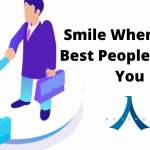A new HR disruption is here and it’s here to stay. What is this new buzzword and how are talent issues evolving?
With digital transformation rapidly changing the nature of work, businesses are focused not only on building the right workforce to meet evolving needs but also ensure that the experience of the employees is one that fosters a stronger relationship with them.
Are we in the midst of shifting from “Talent Management” to “Talent Experience”?
Recently, we had the chance to pick the brains of some of Malaysia’s top CHROs to better understand what HR leaders think about Talent Experience and improving employees’ work, productivity and personal lives.
Here are the key points that were highlighted:
- Importance of personalisation
- Difficulty in implementing personalisation
- How to translate the mindset to the organisation
- Justifying ROI
- Dirty data is worse than no data
Importance of Personalisation
How we consume information and services, as well as millennials entering the workforce, are two reasons why personalisation has never been as important.
All the CHROs talked about how one manages their workforce has similarities to raising a child, wherein not every child is the same and may require different parenting styles. Similarly, employees have different needs and wants, which requires personalisation
A key point to note here is that while employees and HR want personalisation, this is a big change from traditional practices. Therefore, expect challenges or resistance from the organisation while going through this transition.
Difficulty in Implementing Personalisation
The challenge lies in translating that mindset and behaviour to the ground. Quite often, there is reluctance in managers wanting to accept the responsibility to justify decisions related to personalisation. Most managers rather prefer to have a standardised cheat sheet dictated by HR on key issues that involve personalisation, so that their hands are clean. For instance, take the case of work from home decisions. In many companies, the decision to allow or not allow this is with the manager. However, many managers do not like to take this decision, preferring to have a standard policy driven by HR!
Of course, there are exceptions, where mature managers are able to handle and manage discussions with their teams and discern tough decisions, but this is tough to implement.
In Malaysia specifically, people also seem reluctant to break the status quo because personalising the experience takes more effort. Their discomfort towards change has been translated in how their prioritise personalisation.
How to Translate the Mindset to the Organization?
One CHRO shared their experience of having to dirty their hands by going to the ground and taking baby steps to train and change the culture.
Managers are trained to have tough conversations with their teams. This helps improve their competencies in managing teams better.
CHROs have to drive the change and sometimes take unconventional methods in leveraging influential leaders to pioneer the change.
Justifying ROI
Another challenge was that sometimes there are no direct answers to ROI.
CHROs in Malaysia want to do so much more but sometimes the lack of direct ROI makes it harder. Despite their challenges, they still take up responsibility through trial and error and are accountable for their decisions.
A CHRO shared that they garner support from the ground and leverage on that to demonstrate the needs of the organization as a whole rather than it just being an HR initiative.
It also depends on the culture of the organisation. Some cultures are more inclined to a certain type of personality and it is easier for them to sell and pitch to their stakeholders.
Dirty Data is Worse than No Data
Data is important in helping CHROs decide the level of personalisation or standardisation. CHROs now rely a lot on data to make better objective decisions in managing the workforce.
However, the cleanliness of data is more important as dirty data gives wrong assumptions. Organisations need to manage and maintain their data well in order to make sense out of it.
CHROs painstakingly spend long hours to go through data to make sense out of it. Some also use small data points that give them valuable insights to drive transformational change for the business. Here are some examples of how data can cause challenges to CHRO’s
In conclusion
The landscape of HR in Malaysia has definitely developed from the dated “Talent Management” to “Talent Experience”. It is just the start of the new era but as the world moves towards an increase in digitalisation, the impact for HR will be huge. To stay ahead of the game, businesses now have shifted to investing in their people to build digital skills and agile transformation with new ways of managing jobs and careers.
Reference
Page Contents






